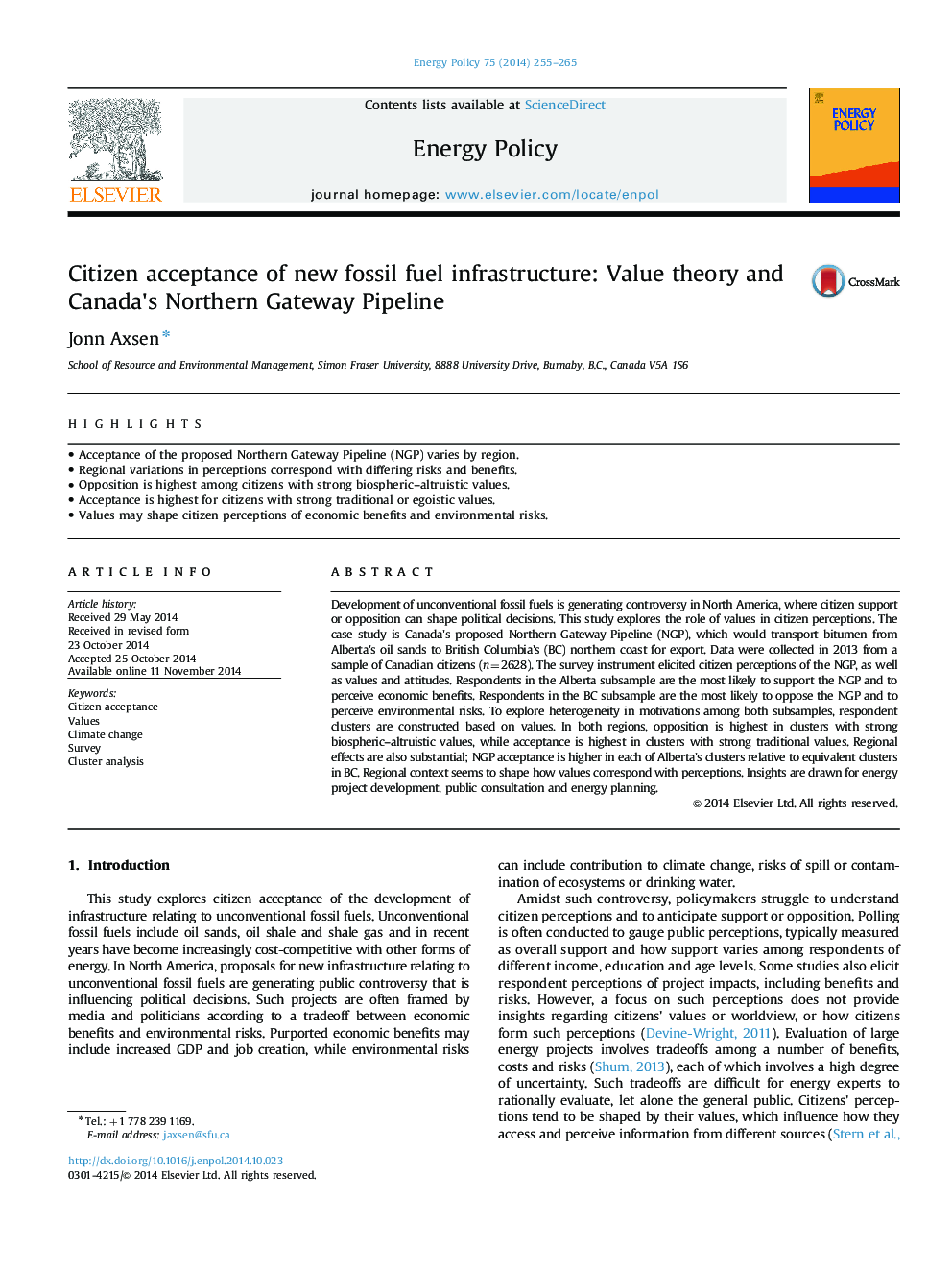| Article ID | Journal | Published Year | Pages | File Type |
|---|---|---|---|---|
| 7401485 | Energy Policy | 2014 | 11 Pages |
Abstract
Development of unconventional fossil fuels is generating controversy in North America, where citizen support or opposition can shape political decisions. This study explores the role of values in citizen perceptions. The case study is Canada׳s proposed Northern Gateway Pipeline (NGP), which would transport bitumen from Alberta׳s oil sands to British Columbia׳s (BC) northern coast for export. Data were collected in 2013 from a sample of Canadian citizens (n=2628). The survey instrument elicited citizen perceptions of the NGP, as well as values and attitudes. Respondents in the Alberta subsample are the most likely to support the NGP and to perceive economic benefits. Respondents in the BC subsample are the most likely to oppose the NGP and to perceive environmental risks. To explore heterogeneity in motivations among both subsamples, respondent clusters are constructed based on values. In both regions, opposition is highest in clusters with strong biospheric-altruistic values, while acceptance is highest in clusters with strong traditional values. Regional effects are also substantial; NGP acceptance is higher in each of Alberta׳s clusters relative to equivalent clusters in BC. Regional context seems to shape how values correspond with perceptions. Insights are drawn for energy project development, public consultation and energy planning.
Related Topics
Physical Sciences and Engineering
Energy
Energy Engineering and Power Technology
Authors
Jonn Axsen,
